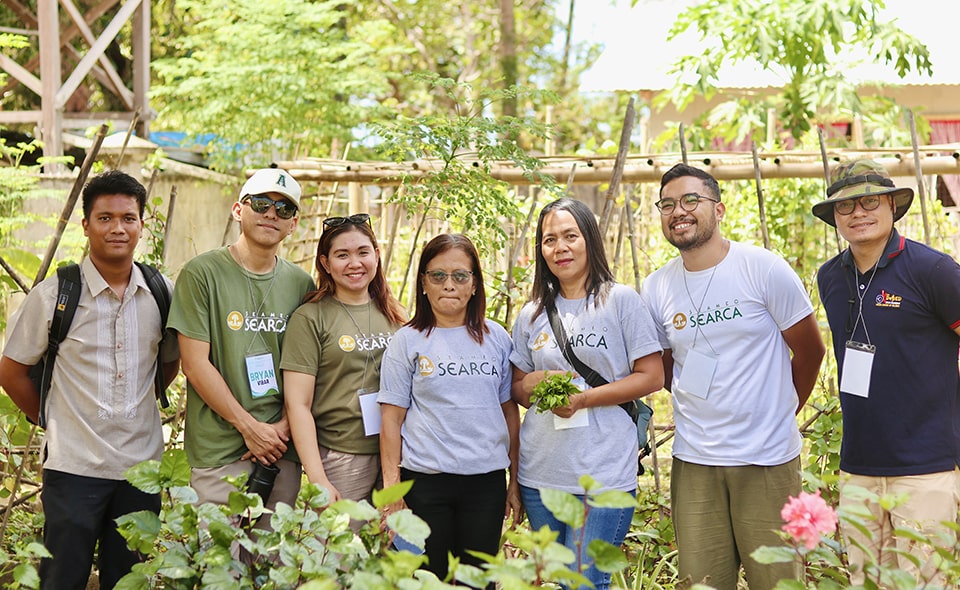 SEARCA's Anna Gale Vallez (third from left) leads the study team composed of Mr. Antonio Flores II, Consultant and Technical Writer (second from right); Mr. Bryan Dale Gabo (rightmost), Nurse II of DepEd-Palawan; and teachers from Salvacion Elementary School.
SEARCA's Anna Gale Vallez (third from left) leads the study team composed of Mr. Antonio Flores II, Consultant and Technical Writer (second from right); Mr. Bryan Dale Gabo (rightmost), Nurse II of DepEd-Palawan; and teachers from Salvacion Elementary School.
PALAWAN, Philippines – The Southeast Asian Regional Center for Graduate Study and Research in Agriculture (SEARCA) conducted an Endline Study on Nutrition and Socio-economic Components and the Monitoring and Evaluation of School Gardens in the nine pilot schools of the School-plus-Home Gardens cum Biodiversity Enhancement Enterprise (SHGBEE) Project in Busuanga Island, Palawan.
The endline study builds upon the insights gained from the Gulayan sa Paaralan Program (GPP), the School-Based Feeding Program (SBFP), and the School-Plus-Home Gardens Project. It primarily aims to evaluate the impact of school-based feeding initiatives on enhancing food and nutrition security in Busuanga Island, Palawan. Additionally, the study evaluates school children's nutritional conditions and dietary habits by comparing their nutritional status and dietary patterns before and after the intervention. It also assesses the production of locally adapted vegetables through school gardening by examining the quantity and variety of crops grown and their contribution to nutritional security. The study likewise measures changes in students' knowledge, attitudes, and practices related to agriculture and nutrition, focusing on their understanding of gardening, nutrition, and food production. Lastly, it analyzes household food security by assessing food security status and identifying household coping strategies.
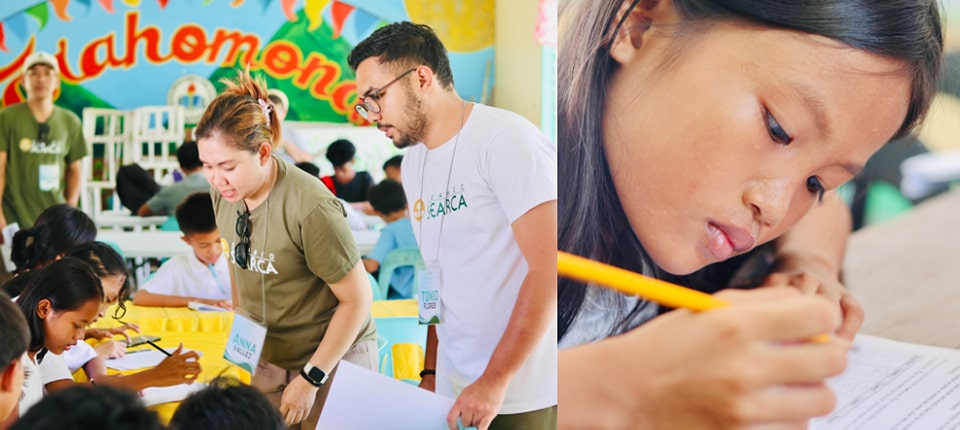 Ms. Vallez and Mr. Flores facilitate the survey of schoolchildren at Salvacion National High School and Salvacion Elementary School, Busuanga, Palawan.
Ms. Vallez and Mr. Flores facilitate the survey of schoolchildren at Salvacion National High School and Salvacion Elementary School, Busuanga, Palawan.
Simultaneously with the survey of schoolchildren, interviews were also conducted with their parents. These interviews gathered various information on household consumption and expenditure, including home and major asset ownership, household spending and consumption patterns, and weekly food expenses. Parents were asked about significant household expenditures, engagement in home vegetable gardening, access to technical assistance for vegetable cultivation, and experiences related to food insecurity. The survey further examined coping mechanisms through the Food Insecurity Experience Scale (FIES) and the Reduced Coping Strategy Index, providing a comprehensive understanding of household food security and resilience.
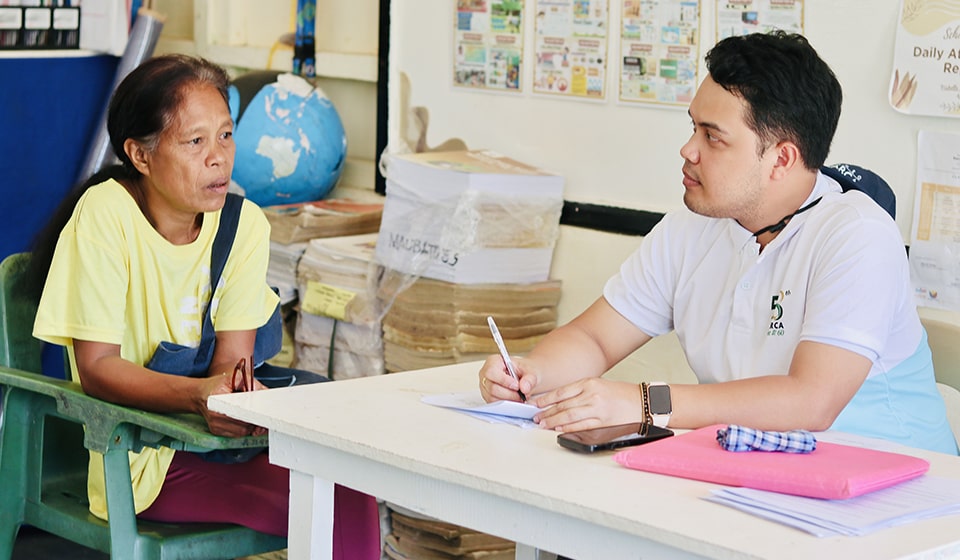 SEARCA's Kim Louisse Patagnan interviews a mother at Malbato Elementary School in Coron, Palawan.
SEARCA's Kim Louisse Patagnan interviews a mother at Malbato Elementary School in Coron, Palawan.
Ms. Anna Gale Vallez, Program Specialist of SEARCA's Research and Thought Leadership Department, and Mr. Antonio Flores II, Consultant and Technical Writer, led the monitoring and evaluation of school gardens across nine pilot schools in Busuanga and Coron, Palawan, with the assistance of Mr. Bryan Dale Gabo, Nurse II, DepEd-Palawan. As part of the assessment, they also interviewed the GPP coordinators to gain insights into the implementation and challenges of the program. The evaluation focused on key aspects such as diversity of cultivated vegetables, maintenance and sustainability of the gardens, and their contribution to the SBFP. This comprehensive assessment aimed to determine the effectiveness of school gardening initiatives in enhancing food security, promoting sustainable agricultural practices, and supporting school nutrition programs.
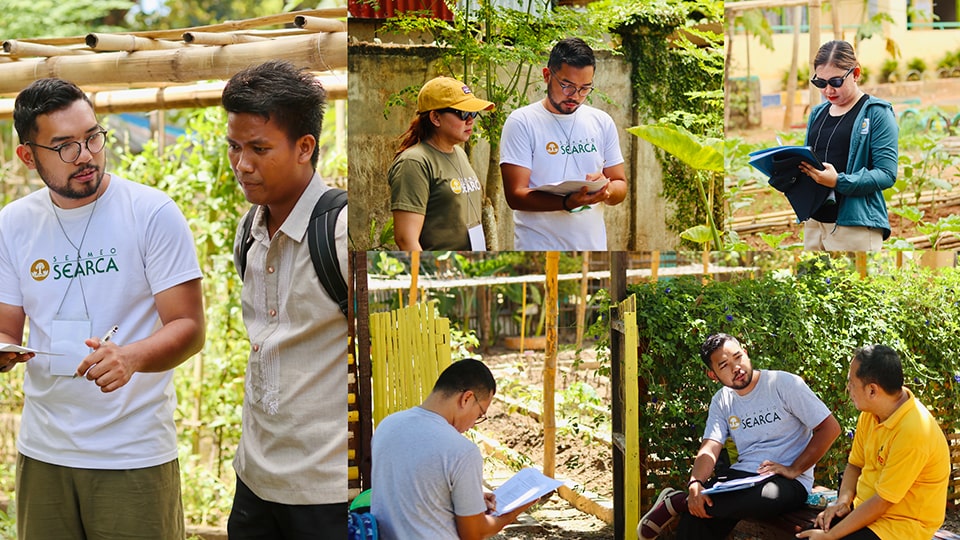 Ms. Vallez and Mr. Flores, with the assistance of Mr. Gabo, conduct the monitoring and evaluation of school gardens across nine pilot schools in Busuanga and Coron in Palawan.
Ms. Vallez and Mr. Flores, with the assistance of Mr. Gabo, conduct the monitoring and evaluation of school gardens across nine pilot schools in Busuanga and Coron in Palawan.
SEARCA was honored by Malbato Elementary School and the Regalo ng Kilit Foundation through a tree-planting ceremony headed by Dr. Manuel Reyes, President of Regalo ng Kilit Foundation. The tree designated to SEARCA symbolized the Center's commitment to supporting and sustaining school gardens. This recognition reflects the Center's invaluable contribution to fostering agricultural sustainability and enhancing the nutritional well-being of students and the broader community. The initiative also highlights the profound impact of school gardens, which extend beyond the school grounds to promote food security, environmental stewardship, and community resilience. This enduring symbol serves as a reminder that school gardens are not merely sources of nourishment but vital pillars of a thriving and healthy community.
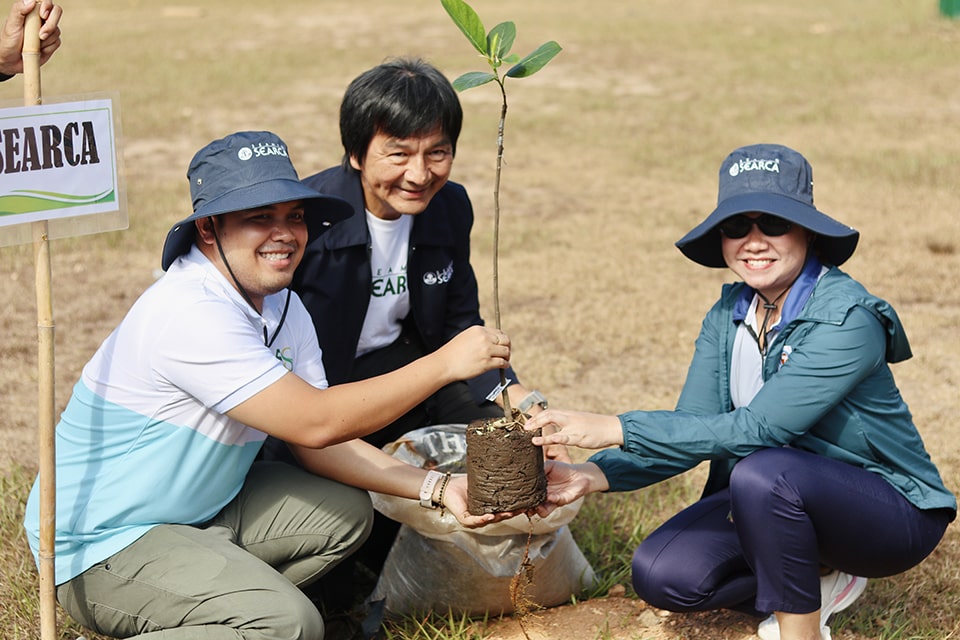
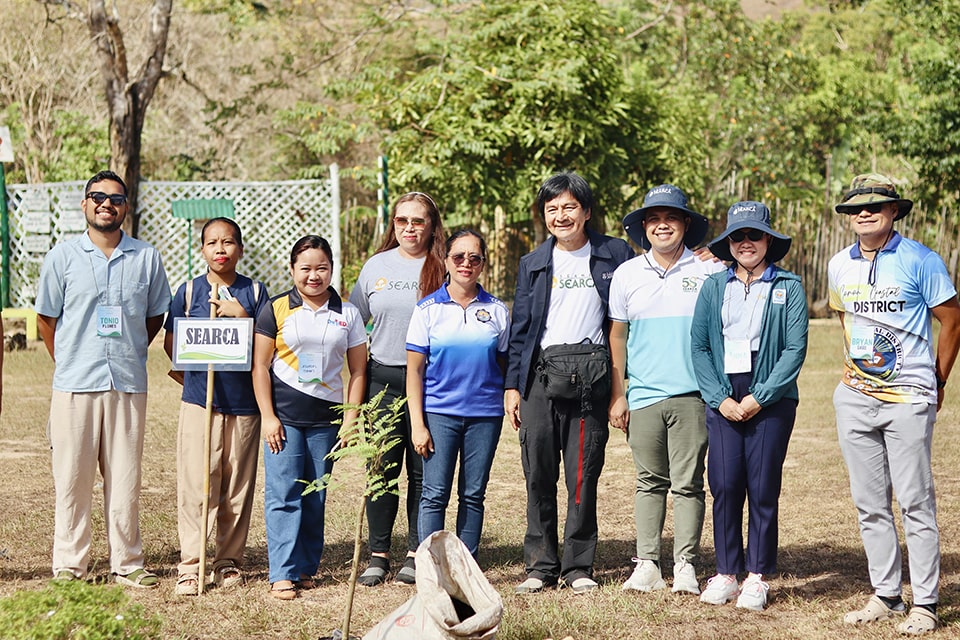
 This website uses cookies to ensure you get the best experience.
This website uses cookies to ensure you get the best experience.